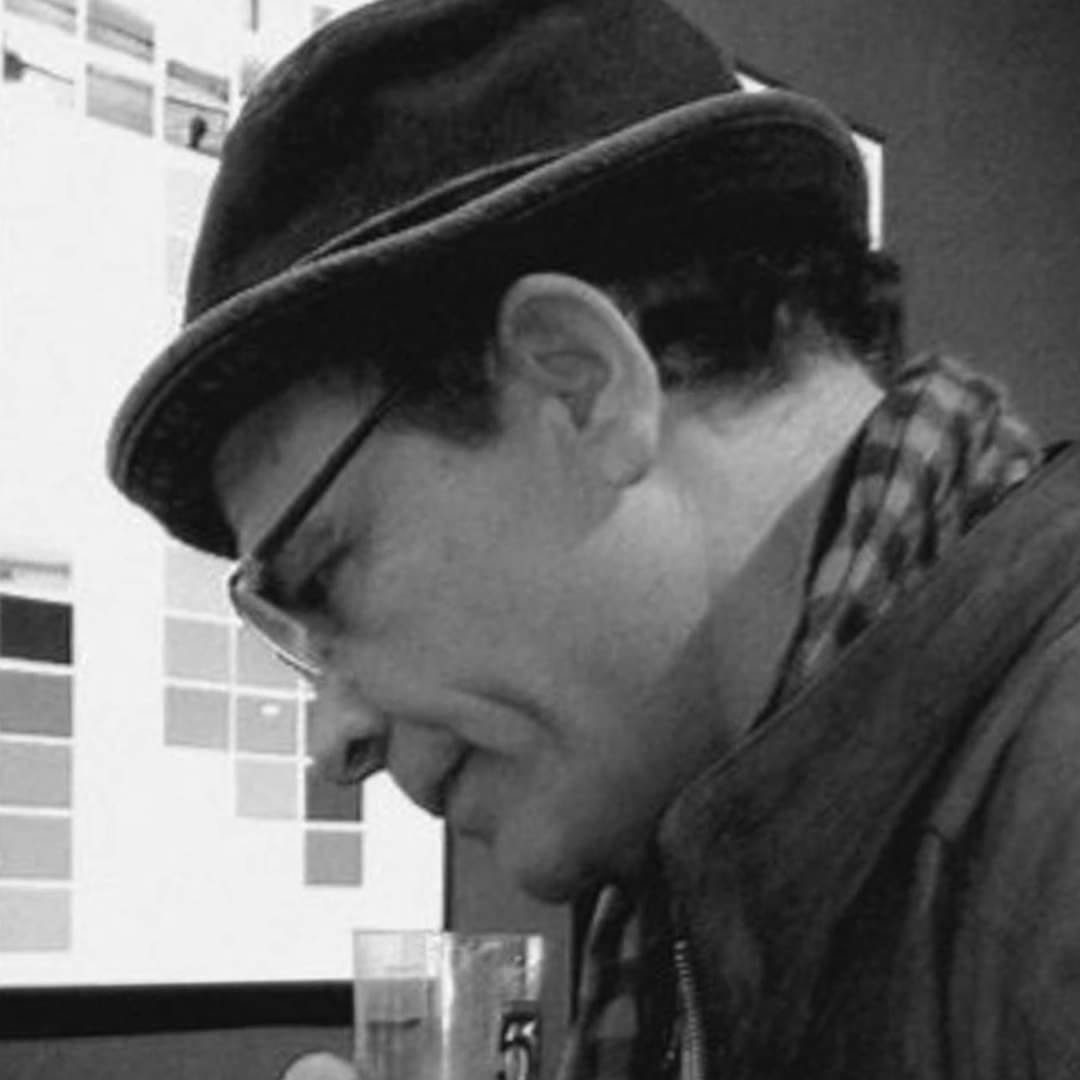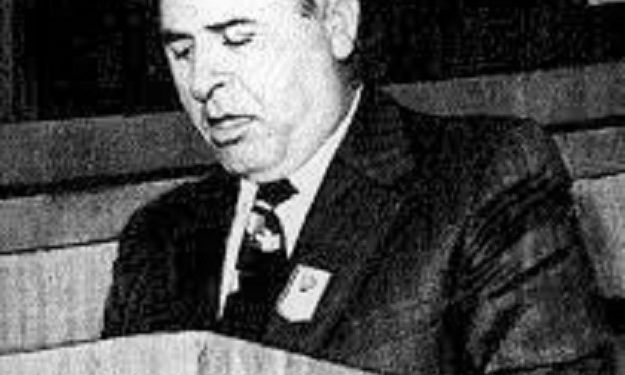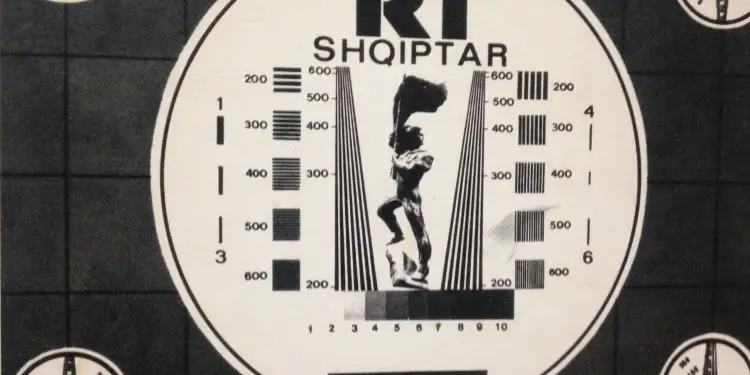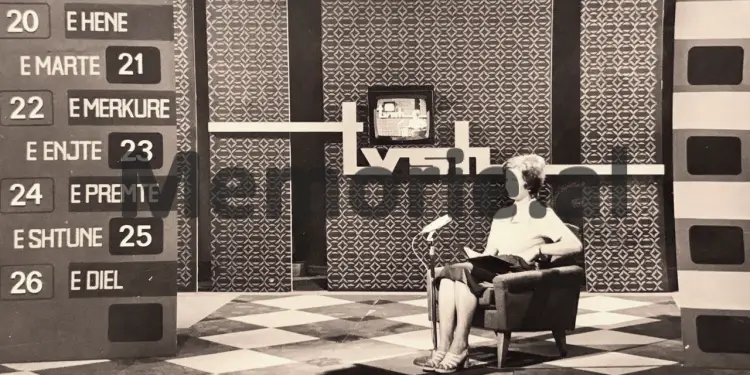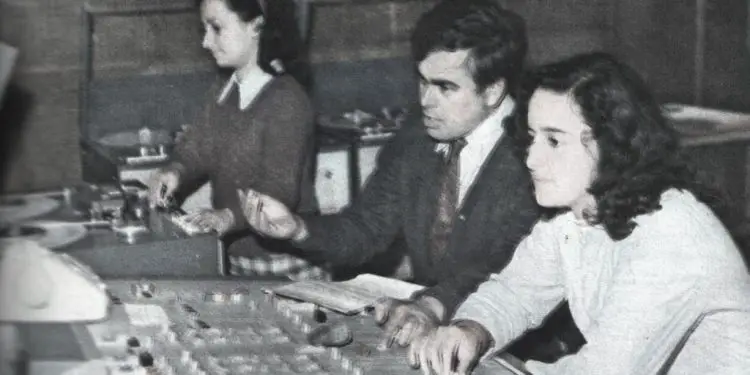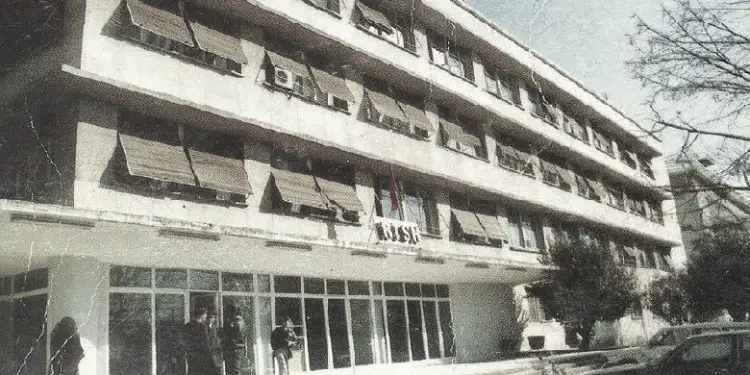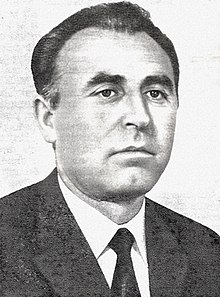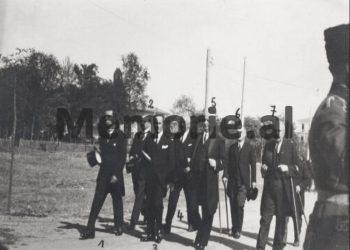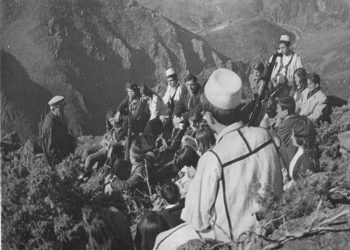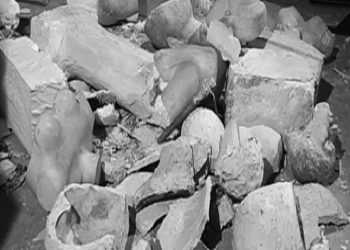By Vasil Qesari
Part thirteen
Memorie.al/ The overthrow of the great totalitarian edifice in Albania would leave behind, not only the change of the system, accompanied by lots of hopes, mirages and cries of happiness but, unfortunately, also many wounds, dramas, victims, dust, milk and disappointments from the most different. Ten years and more after that event, which deeply shook society, completely overturning many previous codes, rules and concepts, people still continue to ask themselves such questions as: What really happened in society Albanian, during the last 50 years of the dictatorship? How was it possible that the system managed to warp everything? Why did people accept it? What was the totalitarian logic of the transformation of society and the individual? How were the structures of totalitarian mechanisms conceived and functioning: propaganda, secret police and the exercise of the ideology of terror? How did it happen that among all the communist countries of Eastern Europe, Albania was considered an exception or a special case? Why did Enver Hoxha remain blindly, fanatically loyal to Stalin until the end, turning the country into a prison where violence, fear and purges continued until the end of the 80s? Why was the country so insanely isolated, locking people up between bunkers and barbed wire? Why, then, did all the above phenomena happen…?! The book “Post-scriptum for Dictatorship” does not claim to provide definitive answers to the above questions, or the complexity of the reasons that brought and maintained the totalitarian power in Albania. Nor is it a complete, deep and comprehensive fresco of the life and suffering that people experienced during that system. Its author, perhaps, has the merit that together with the retrospective view of the totalitarian period as well as the zeal of a passionate analyst, he has tried to turn his head back once again, to give not only his personal memories and opinions, but also to return once again to the vision of that era with the simple philosophy of preserving the Memory and supporting the Appeal to never forget the well-known maxim, that…the corpse’s nails and hair continue to grow even after death! Ten years or more after the great revolution, the book in question has current value and we hope it will be appreciated by the reader because, as an Albanian researcher also says… the greatest evil that can happen to a people comes when he fails to analyze his own past. An amnesic people are forced to be constantly neuropathic and repeat their painful experiences…!
Continues from last issue
Looking at the position and role of press workers in that era, it must be said that, intentionally or unintentionally, with or without commitment, with or without conscience, telechronists, like all other journalists in Albania, were nothing but part of the gears of the Party propaganda machine. Fabricators of chronicles, news and embellished information, which in most cases, were made up and fake. In short, complicity in the Great Lie and Deception.
(As was the institution of television itself. The “superpower” of totalitarian propaganda. A processing and oppressive machine which through the screen spread not only dreams and phantasmagorical illusions, but also disorientation and disinformation, psychosis of uncertainty and fear, tight feelings of conviction and non-contradiction to the power of his orders)
Like all the other journalists of the totalitarian press, even the Radio-Television anchors, were so stupid that with cameras and microphones in their hands, they fed him with distorted images.
With selected portraits of party secretaries, vanguard miners and happy cooperators. With a view of prosperous socialist life. Thus, the objectives of their cameras best played the role of optical cells of the Party’s eye. To that eye that observed, spoke and preached like an oracle about how one should think and live, what would happen tomorrow, how the belt should be tightened even more, how an entire people, in line and obedient, should to leave for every day of rest in stocks etc., the whole people, under her far-sighted leadership, had the rare fortune of being the happiest people in the world…!
NEWS BROADCAST
As we said above, the main task of the Newsroom on Television, as well as that of the team of televangelists in the districts, was to produce the News Show every evening. It should have been the most watched show in Albania and, at the same time, the most important and subtle. He wanted to be the most powerful conductor of the Party’s directives as well as the mirror of the revolutionary reality in the country.
Although propagandized and considered as such, in the Radio-Television of that time, there has never been any other show more fake, schematic and boring than that of the News Show. What has remained, without a doubt, still unerased, in the memory of every Albanian of that era, is the fact that, among other things, in most cases, that show was more similar to the bulletins of the Ministry of Agriculture. Because it was quite common for the evening news to start with footage and chronicles that featured tractors, which fell in front of and behind the fields. With wheat planting and harvesting, nitrification and irrigation of plots, services in agricultural crops, actions in aid of agriculture, etc.
(Thus, regularly following the same news over the years, people had become semi-agronomists. They knew exactly the seasons and dates when the lands were first plowed, fertilized, seeded, irrigated, weeded bad, throwing the first hand of nitrate, the second hand, the third …)!
Overall, the Newscast chronicles were mixed. With chronicles and interviews shot in factories, mines, factories and agricultural cooperatives where party secretaries, directors and heads of professional unions announced the exceeding of plans and took commitments or new initiatives. The news from the country occupied 25 minutes, while the foreign ones, only 5 minutes. Mainly, with information about strikes, protests, poverty and oppression of the working class in the capitalist world. The constant message that the News Show propagated was more or less this:
Under the leadership of Comrade Enver’s Party, Albania was transformed into a large construction site, where people worked and built their happy future.
It is understood that, in those paintings full of light and brilliance of the fantastic and at the same time absurd Albanian reality, the real topics and subjects of life were taboo. For events such as accidents, theft, murder or suicide, it was not even imagined to speak. In special cases, by order from above and depending on the political situations that the country was going through, it was only talked about communists who fell heroically at the top of their duties. Such events were carefully used by the Party, being widely followed for days by the press and Radio-Television, to inspire and mobilize the masses with their selfless example.
But the asphyxiating and dizzying pressure of imposing, disorienting, dizzying and disinforming information was also accompanied by other propaganda methods, which were conveyed not only by the press and Radio-Television, but by other means of public information.
In city centers, squares and streets, in villages and highways, everywhere you looked, you could only see slogans, calls and slogans such as: “The people on their feet – the Party in the forefront”, “Protection of the motherland – duty upon duty” “, “Let the dogs bark, the caravan moves forward”, “Agriculture – everyone’s issue”,
“Oil breaks the blockade”, “To sharpen revolutionary vigilance, etc.”.
It was natural that, in all that, there were endless slogans and slogans, the most numerous of which were dedicated to Enver of the Party: “Party – Enver, we are always ready”, “Long live the unity of the Party – People”, “Socialism is built by the masses – the Party of makes them conscious”, and above all, the slogan: “The party is the heart and brain of the people”.
(The latter constituted in itself the synthesis of the totalitarian doctrine. In other words, in order to think and judge, the people did not need their brains, because it was the Party that thought for them. It was present everywhere and thought about everything, thus replacing his very soul, feelings and life)
But let’s come back to TV propaganda. It was so extreme and politicized that it went beyond any limit of minimal journalistic logic. Thus, for example, on different holidays, all 30 minutes of the News Show were occupied by identical chronicles, with the same texts and images, which came from all districts of the country without exception.
Every year, on every 5th of May, the television broadcast the same footage. Martyrs’ cemeteries, wreaths, tombstones. Pioneers and veterans who honored with their fists. Visit of the members of the Political Bureau and the first secretaries of the districts to the families of the martyrs, etc.
But it didn’t happen only on holidays. Such parades of identical images, accompanied by texts full of emphasis, pathos, figures and socialist emulation, were also broadcast on other occasions, such as, by the way, on the famous days of national actions in aid of agriculture, which were the Weekends of the Albanian society. Television news showed endless lines of buses and trucks full of workers, students, soldiers and pensioners.
Portraits of people. Muscular arms. Wheat harvest. Preparation of silage. Harvesting, stripping and transportation of corn. Opening of drainage and irrigation canals. Collection of urine and organic waste…!
The absurdities and paradoxes of television propaganda were not over. Among them, we can single out the so-called chronicles-echoes, a type of journalism that has never been heard before. Completely original and invented in the laboratories of Albanian totalitarian propaganda, the echo-chronicles consisted in creating a certain psychological and political atmosphere, with the objective of imposing an idea, initiative or directive of the Party on the media. Cooked up in special Party offices for the press, they had to create a certain state of intoxication, stupor and political enthusiasm, which had to support the Party line at all costs.
In such cases, the country experienced a real atmosphere of media electroshock. Not only the press and Radio-Television, but also all structures and levers of the Party, hit with heavy artillery, the brain of every individual and the whole society. Thus, for example, every letter, speech or visit of Enver Hoxha to any district, factory, exhibition or family was accompanied all over the country, flame for flame, with an endless campaign of articles, broadcasts, reports and radio-television chronicles of the type echo.
In the life of that time, that stereotypical practice was more than normal and common. It, and many others, was among the most typical and malignant expressions of totalitarian propaganda, to keep the tall individual stuck, always with the anxiety of work and political commitment. To endlessly accompany his life with work, exhaustion, stress and anxiety and to finally make him a slave, captive, hostage, accomplice and victim of the great programs of the Party.
Whereas, in the cases of actions with strikes concentrated on a national scale, the order was cut. All of Albania had to be reflected on the screen. The televronists had to film and leave urgently to the newsroom in Tirana, to take there the filmed reels together with the corresponding texts. A jealous competition took place between the districts.
(More specifically between the first secretaries and chairmen of the respective executive committees). Whoever appeared first on television? Who declared as many participants as possible? Who was the first to announce the completion and exceeding of the objectives?
In such events, the operativeness of the telechronists’ work, the speed to respond without delay to the orders of the editors on the one hand, as well as the pressure of the first secretaries of the districts on the other hand, meant that they often risked their lives, with the urgent trips they made on motorcycles to Tirana. Such was the case of the telechronist of the Fier district, Ilia Kule, who lost his young life in such an accident, causing a great tragedy for his family, his two daughters and his wife.
I feel a spiritual obligation to tell something about that painful event. Ilia Kule, had an accident and died on the job. He was a television employee, but the latter, even in such a shocking event, was cynical and indifferent, not even saying half a word about the loss of a journalist who had served him for years. Moreover, the attitude of the editors was extremely revolting, disgusting and inhumane.
Ilia Kule, who was my closest work friend. Often times, we traveled to and from orientation meetings at Television together with the train of the Fier-Tirana line. It was a pleasure to talk and discuss with him. He was a man with a pure soul and very sensitive. Always looking for new horizons. Opponent of dogmatism and with radical thoughts. Thirsty for knowledge and culture. A poet and lover of literature, he had managed to publish a volume of poetry.
But Ilia Kule lived and worked full of anxieties, fears, pressures, provocations and worries. Since he had faith in our friendship, he opened up and told me in private the problems and difficult situations he was going through, especially after the arrival of Pali Miska, a member of the Political Bureau of the Central Committee of the Party, as the first secretary in Fier.
(Pali Miska was sent to that district, personally by the order of Enver Hoxha, after successive economic failures in the oil sector as well as the alleged sabotage activity of the so-called hostile groups).
Mediocre, overbearing, brutal and harsh, Pali Miska insisted that, from the district of Fier, chronicles of the achievements of the oil-bearing areas of the district be broadcast every night. In that way, he wanted to assure the leadership of Enver Hoxha himself that, sending him to Fier, directing and mobilizing the party organizations, increasing the demand of the account, etc., were giving the right fruits and changing things for the better.
All of this therefore had to be reflected in the News Show and this was the task of the telechronist of the district, Ilia Kule.
“I feel myself terrorized” – Ilia painfully confessed to me – Every morning they call me to the Party committee and order me to film Pali Miska. Wherever he is, in every place he goes, in every meeting, in every meeting with oilmen. I obey and film and film over and over again… But those of the television editors don’t give me the chronicles and then, all the thunderbolts of Zeus here, fall on me.
Comrade Pali, you can’t see me with your eyes, while the instructors of the Party committee insult, provoke and threaten me non-stop… One midnight, two policemen came to the house. They took me away without giving me any explanation. I got scared. I thought I was being arrested. They took me to the Party committee, where they told me that Comrade Pali was looking for me. He was going to check on a drilling rig and wanted to be filmed… I don’t know how to do it, my friend! How can I keep them?!
After a few months, precisely in such psychological situations, in that state of stress and violent pressure, desperate and without any way out, the unforgettable friend and colleague, Ilia Kule, had a motorcycle accident and died at a very young age…! Memorie.al
The next issue follows




